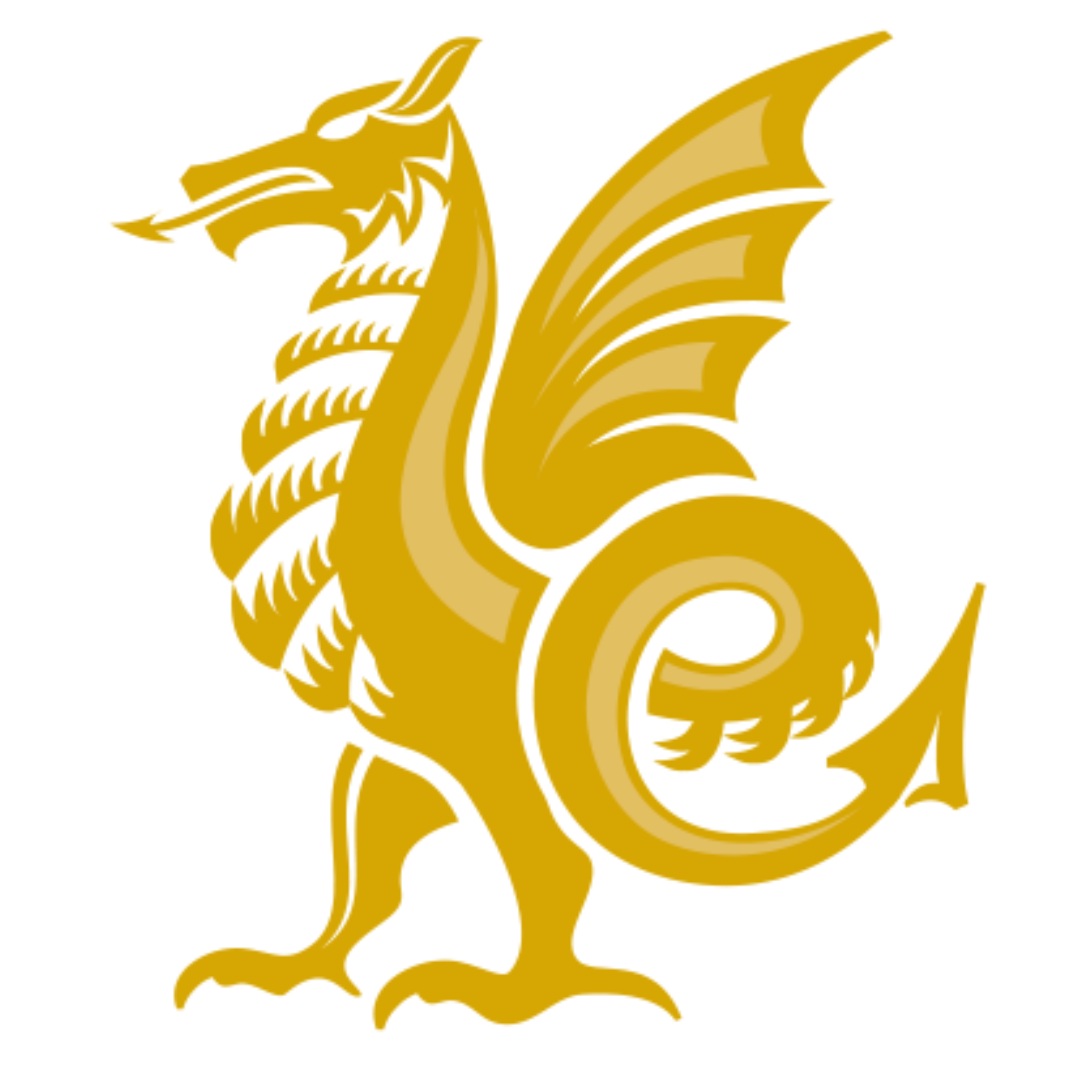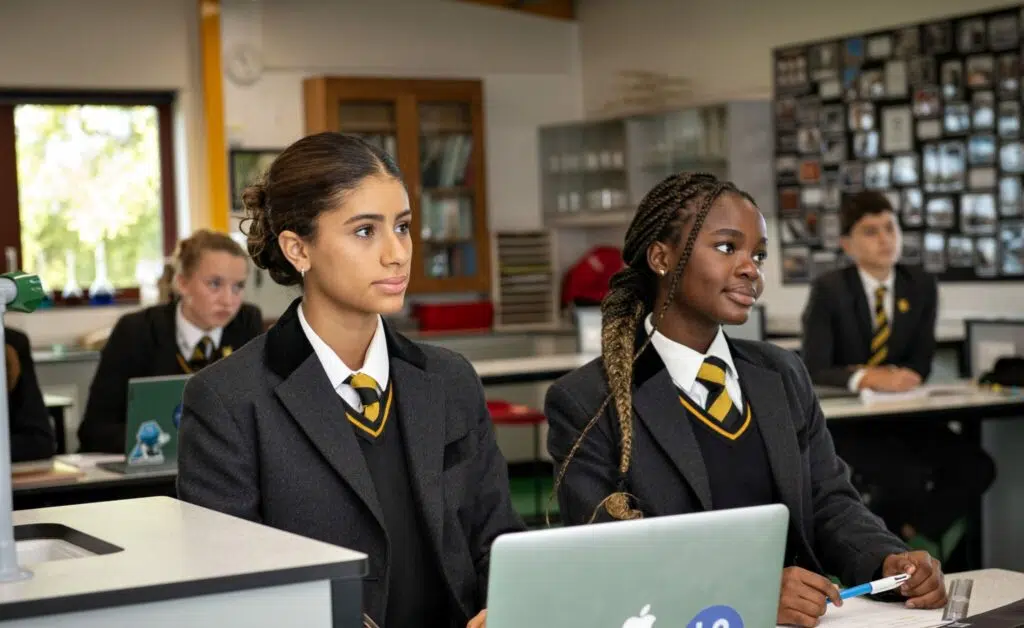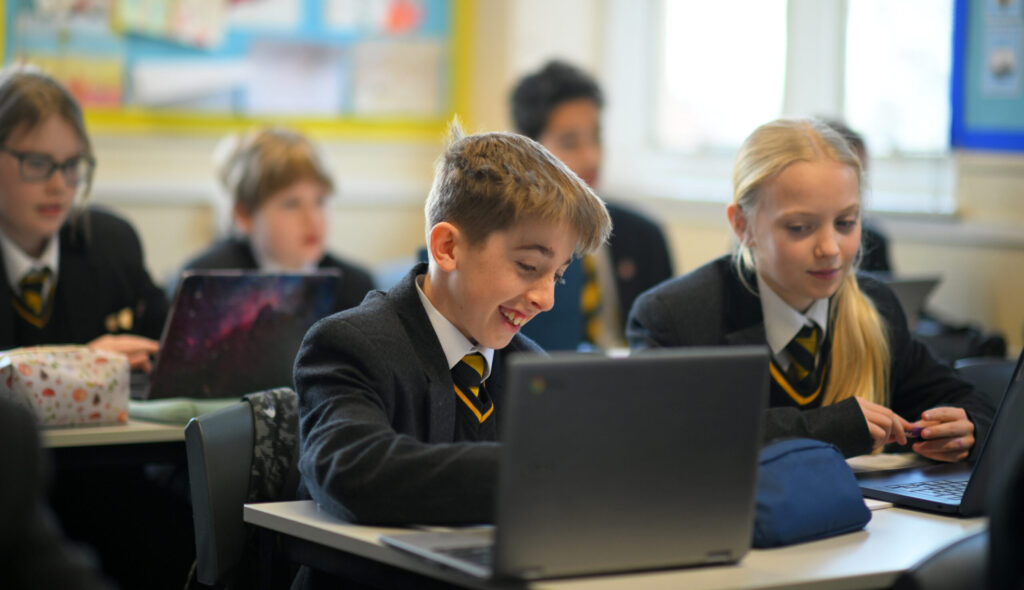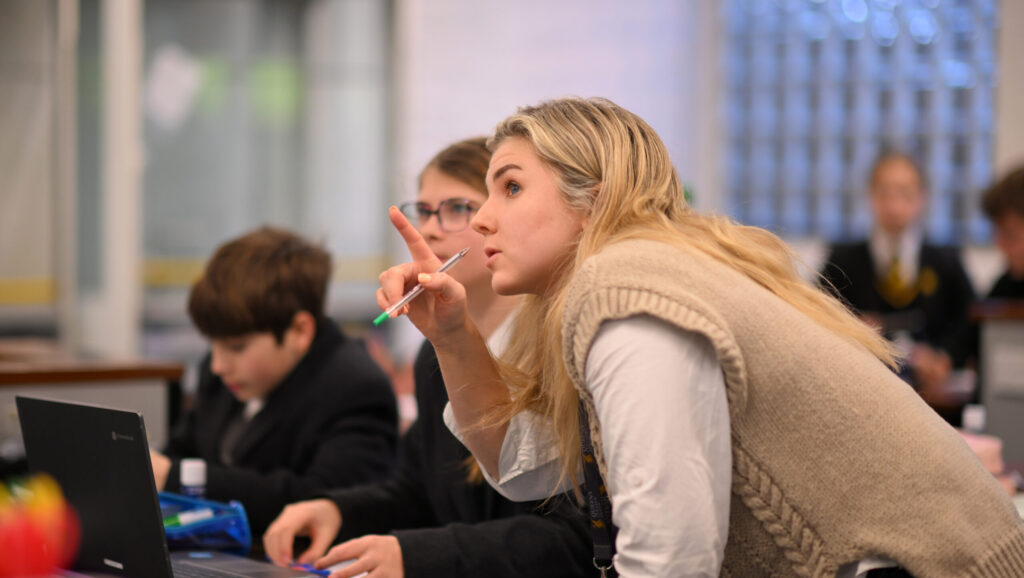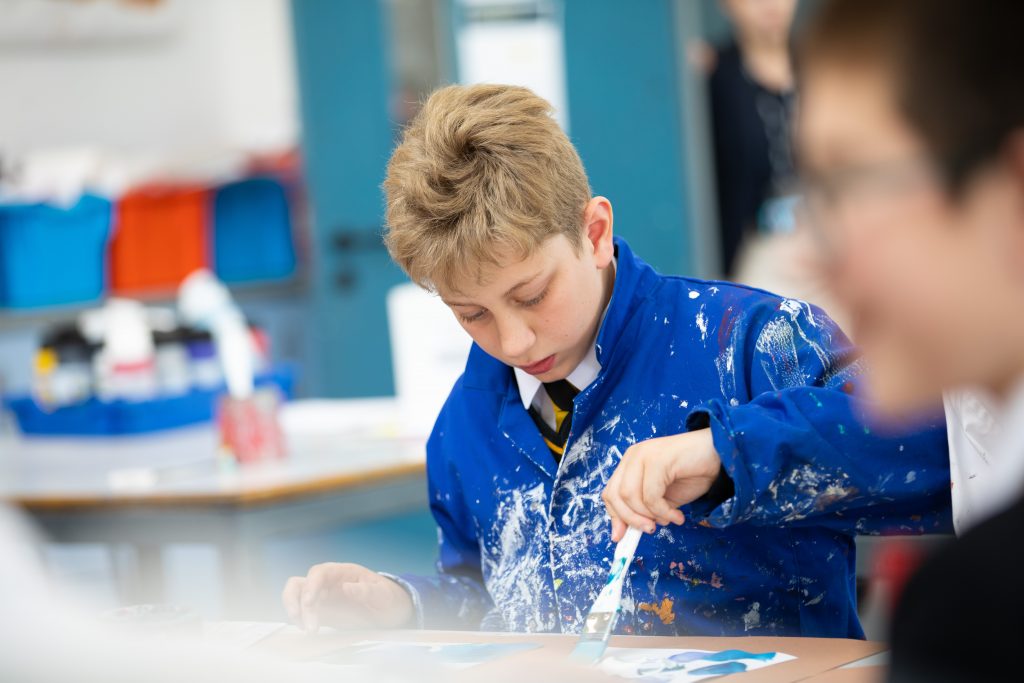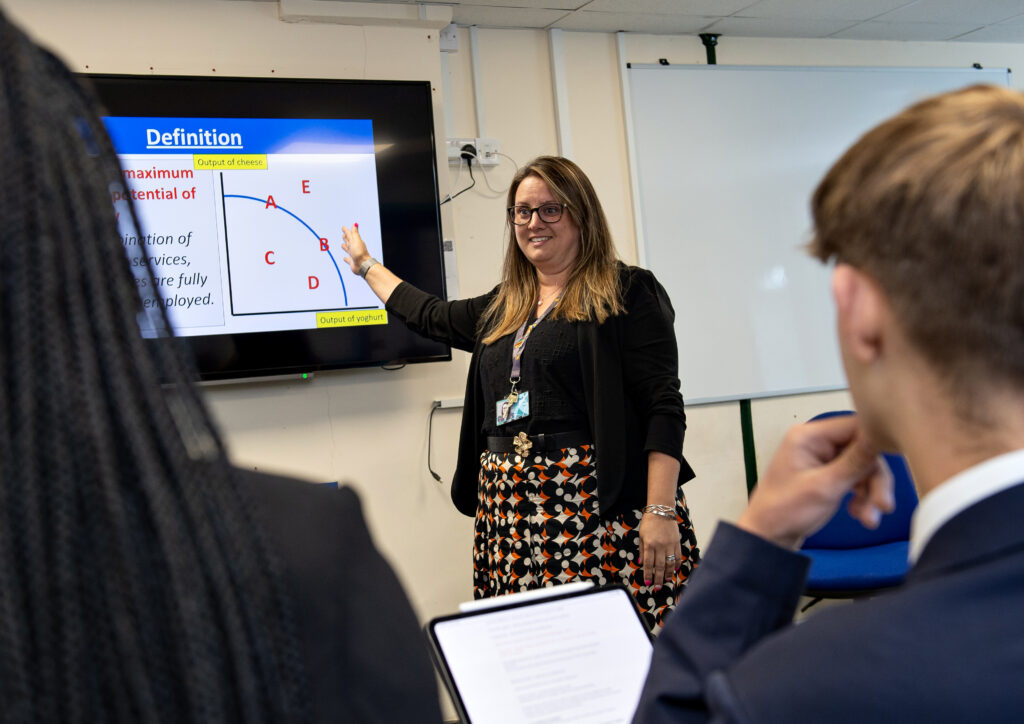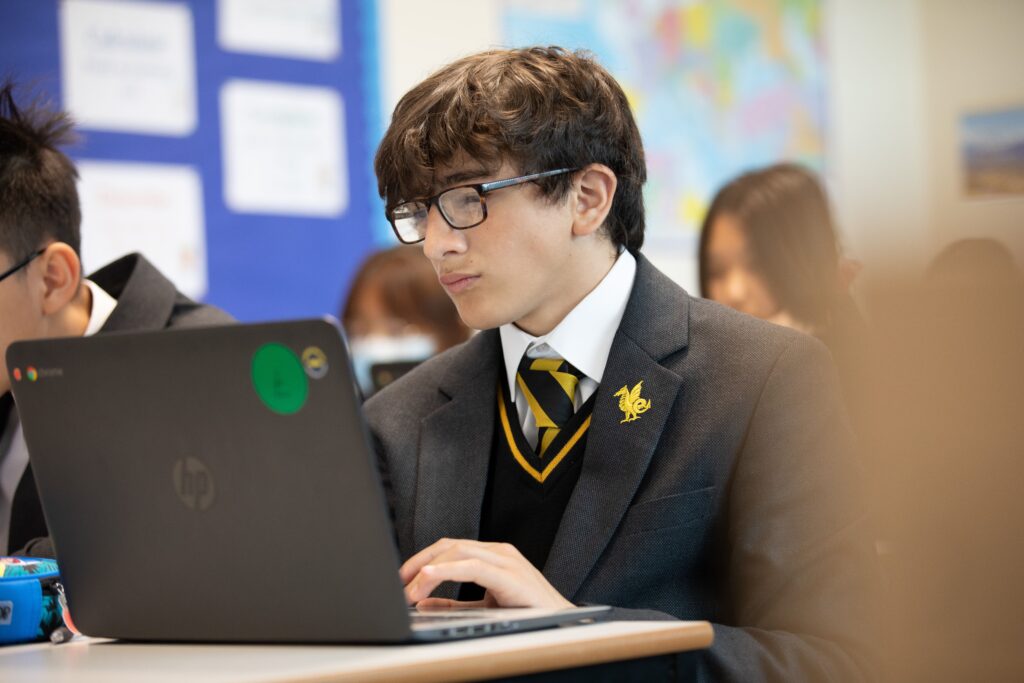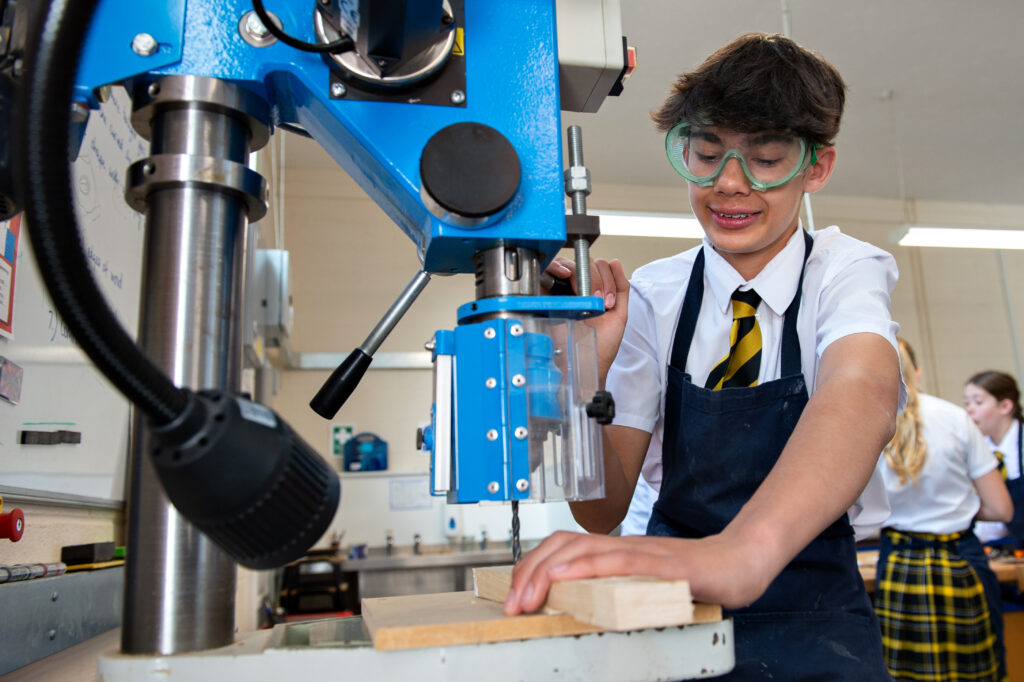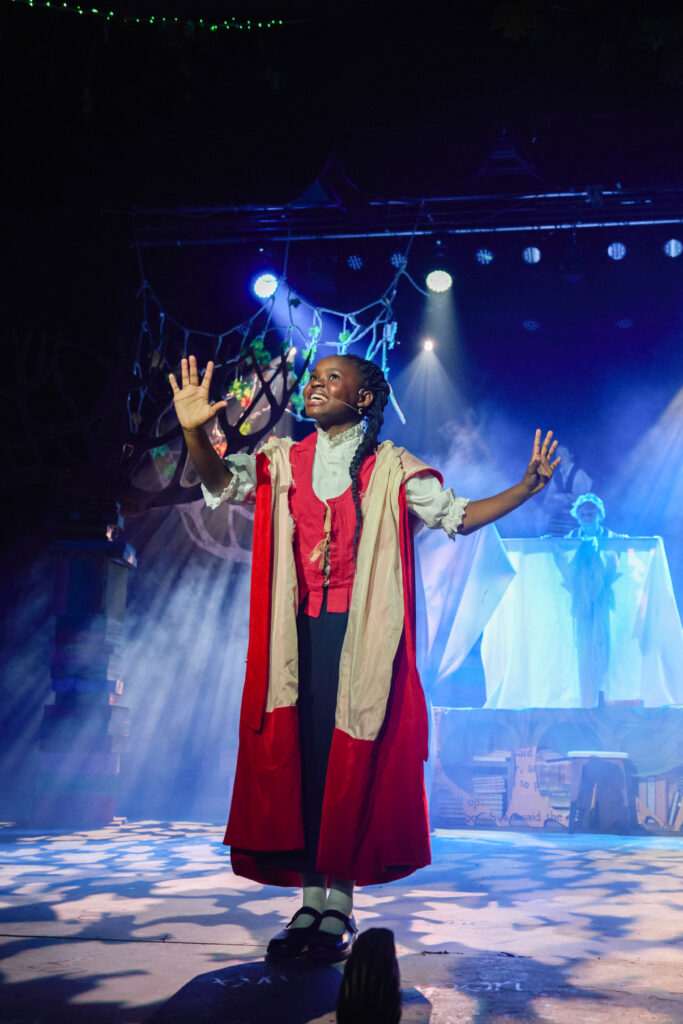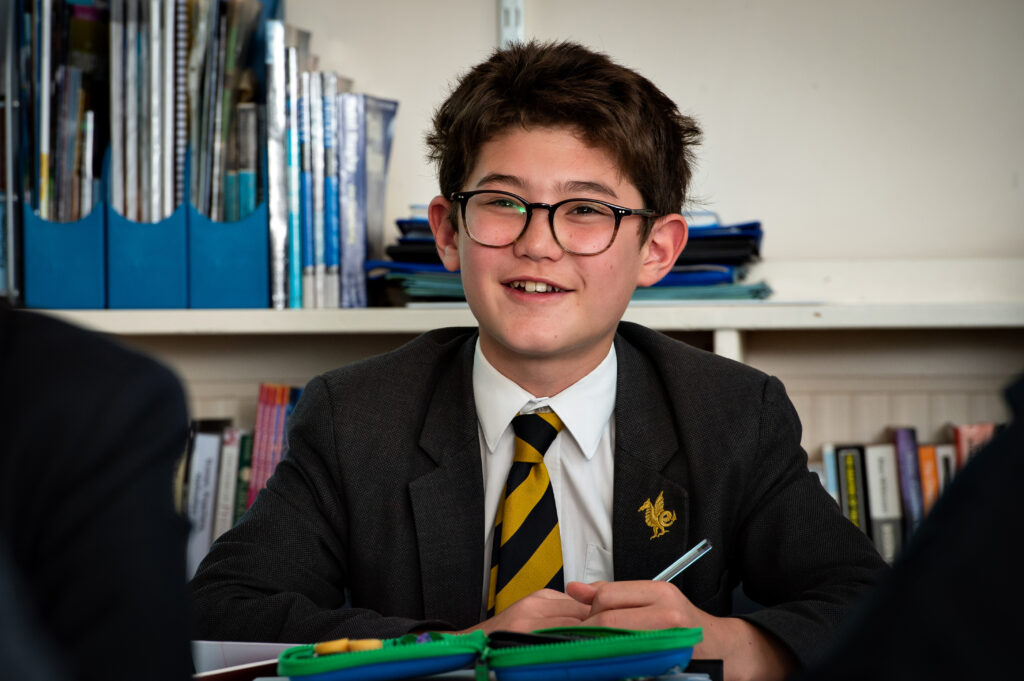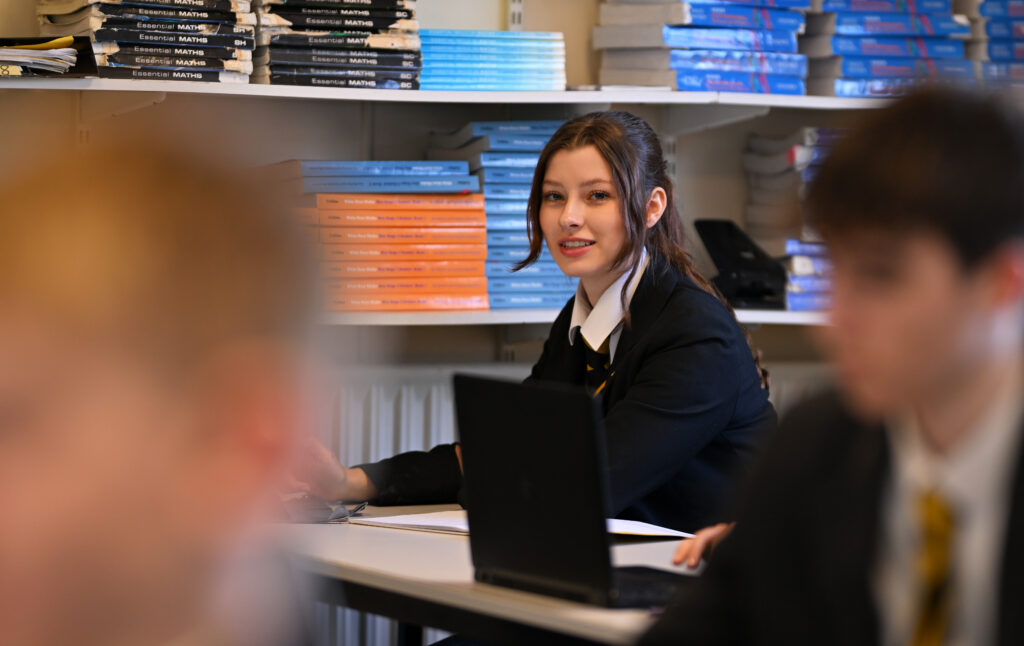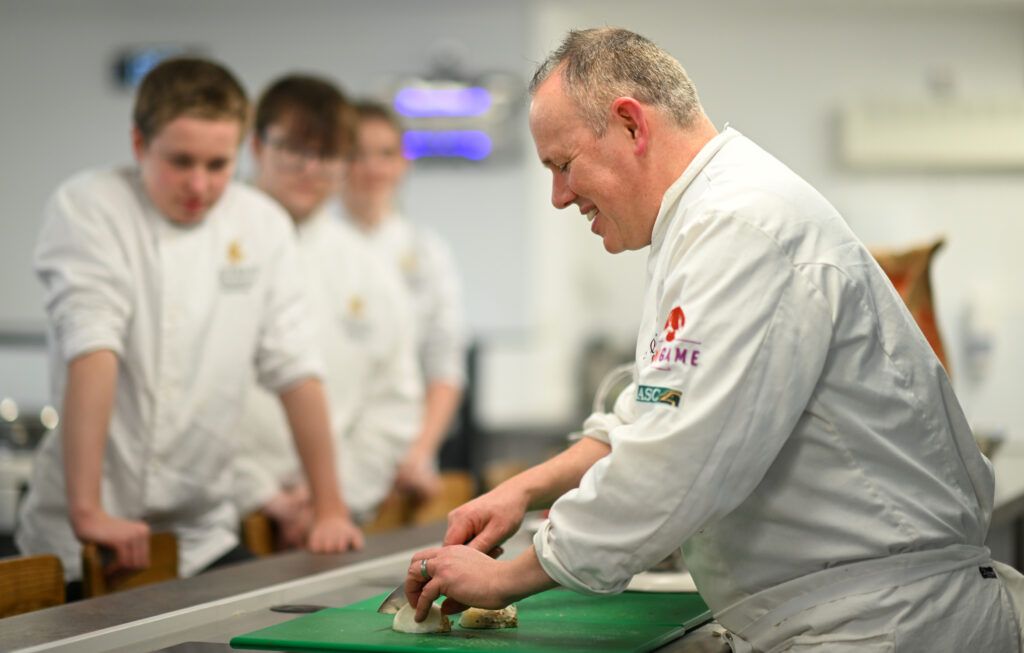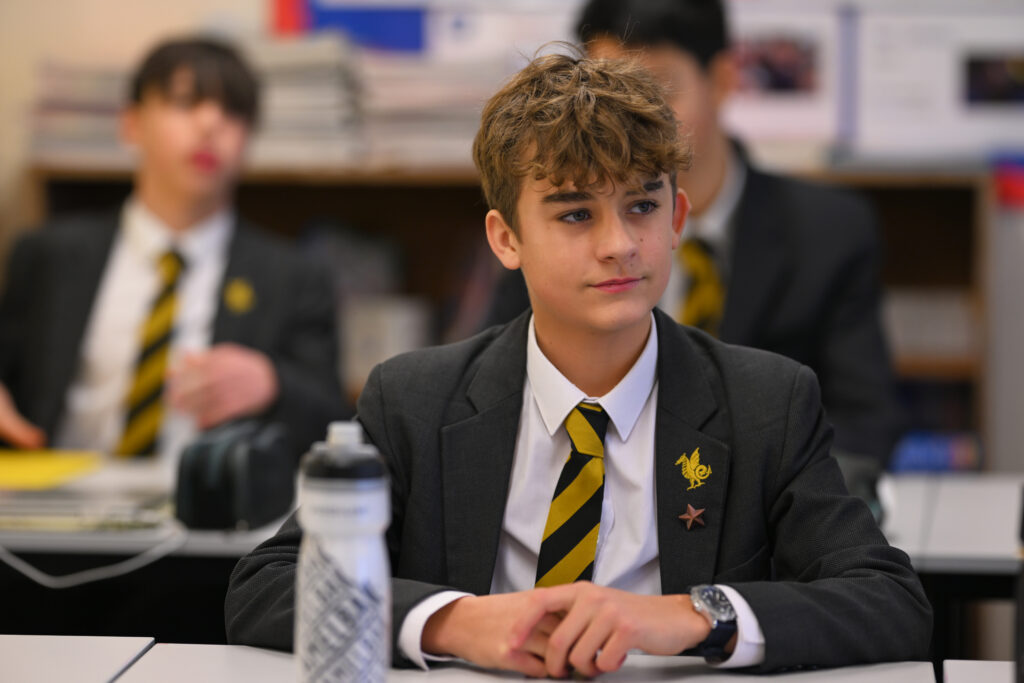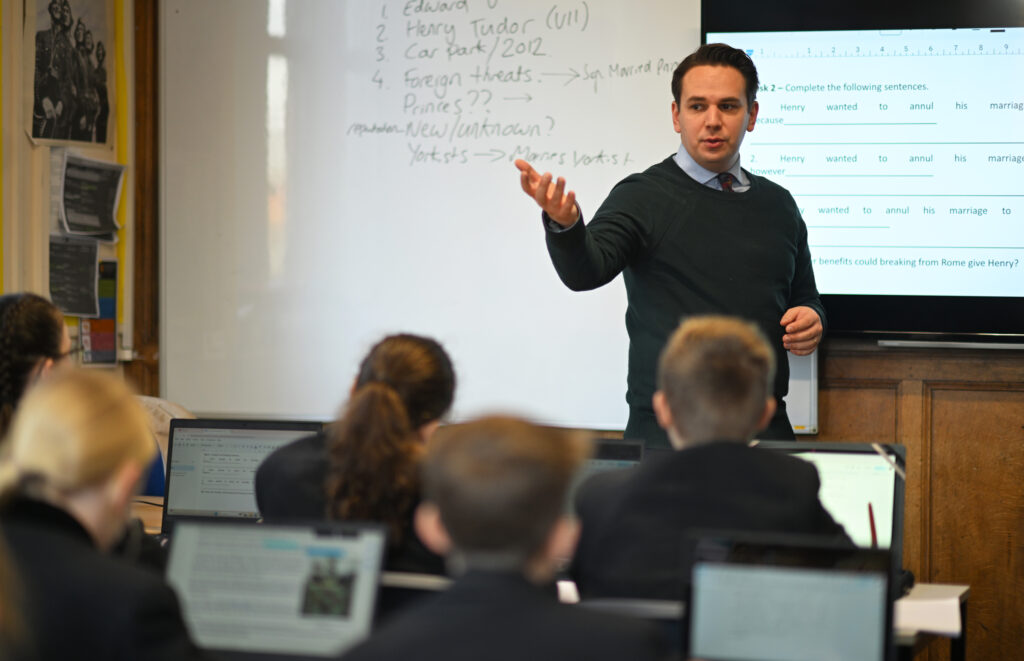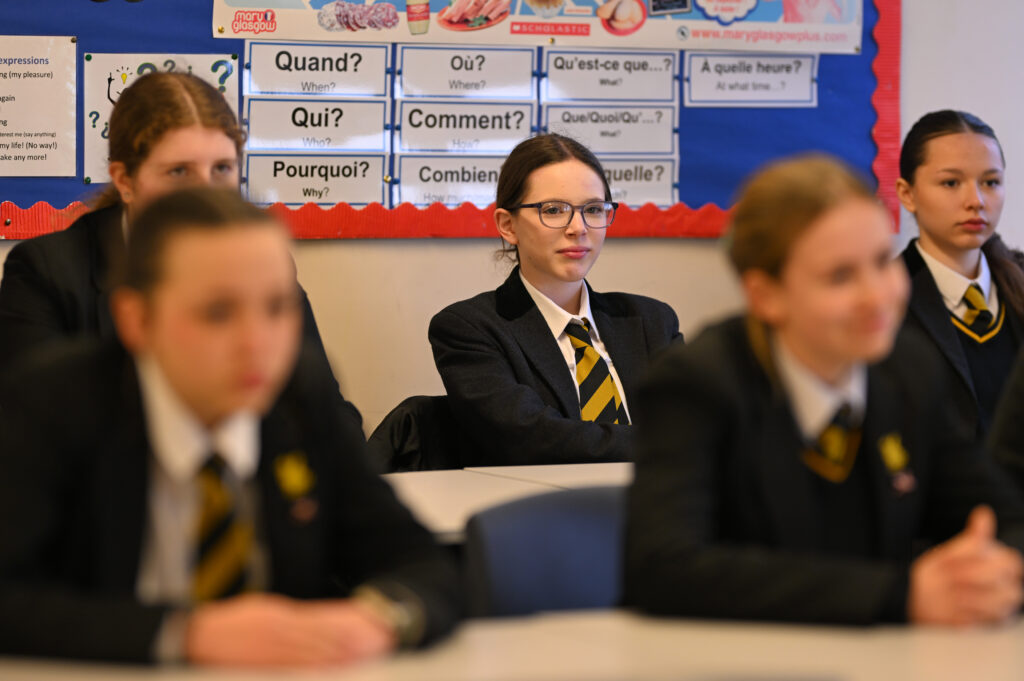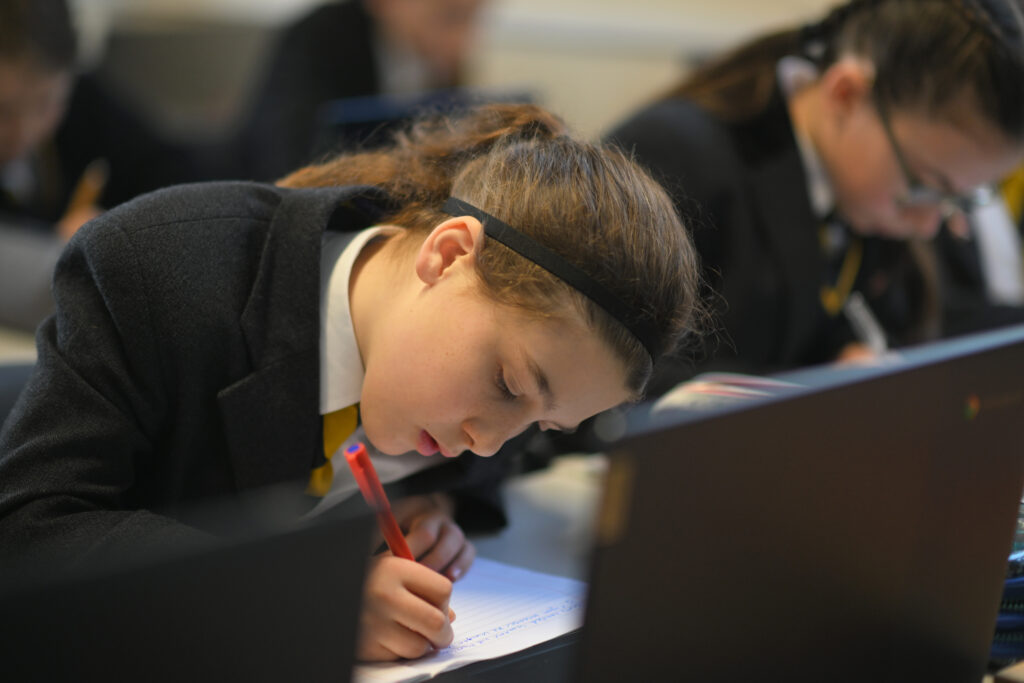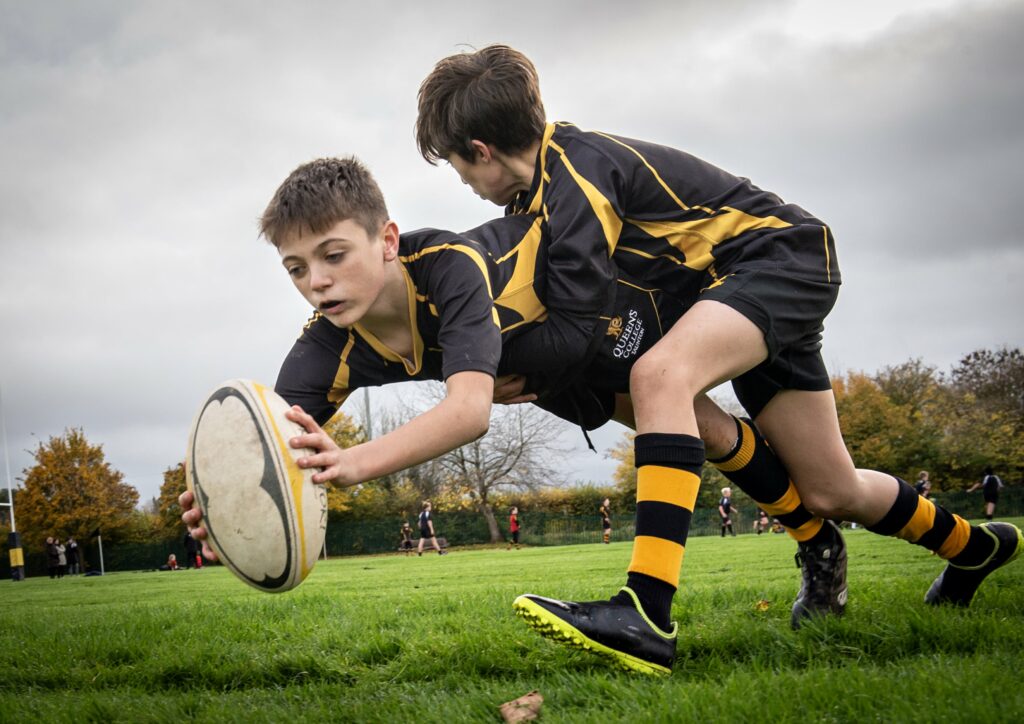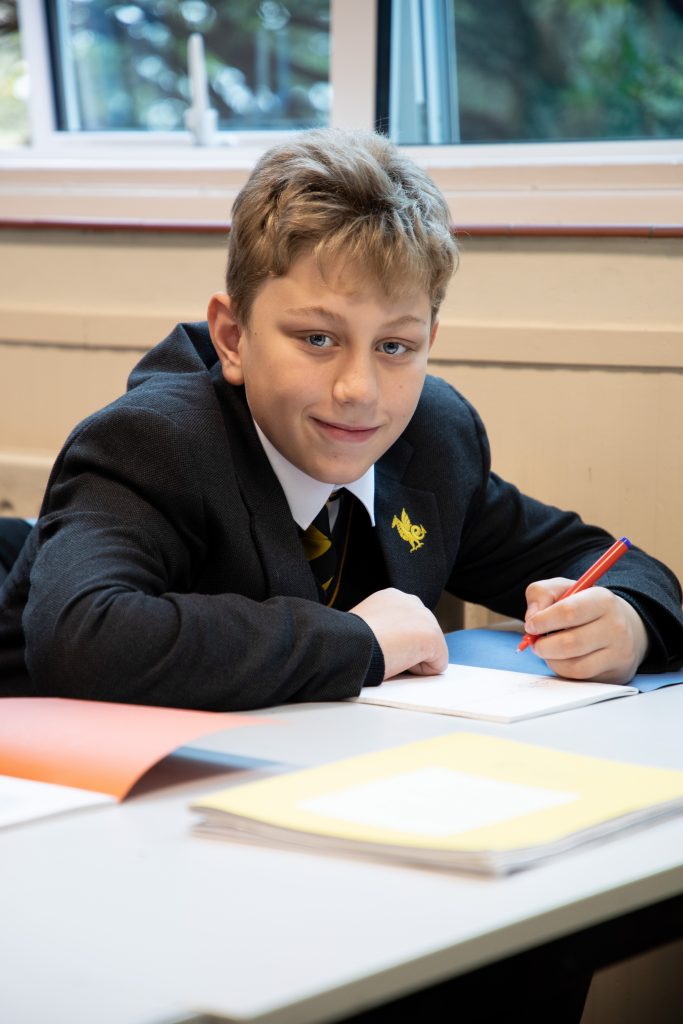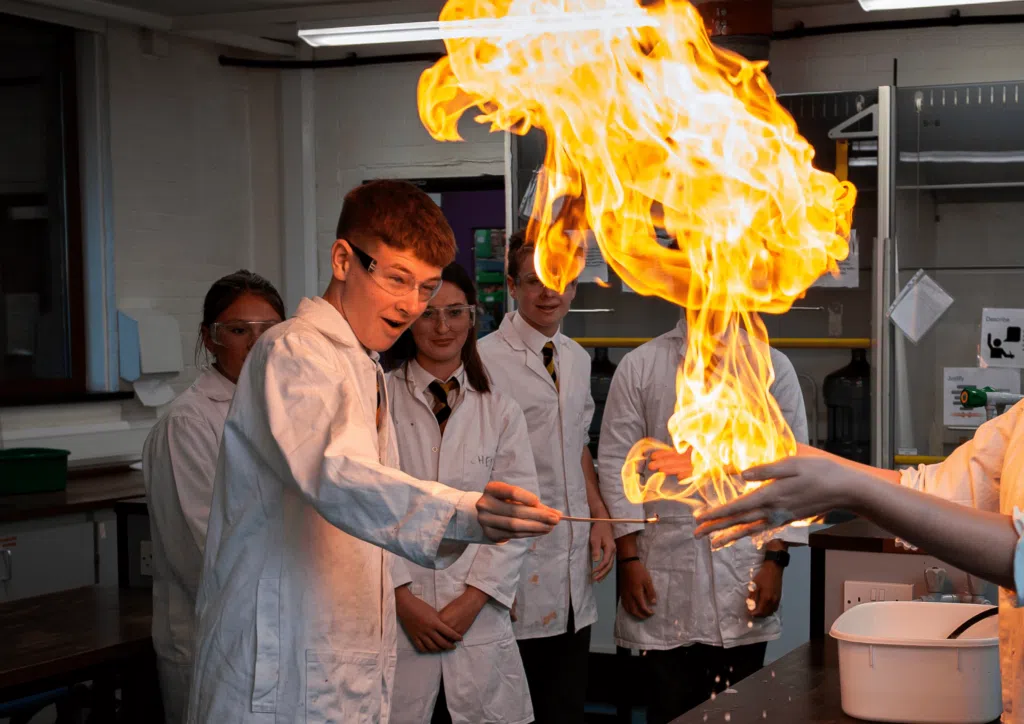Science is a quest to uncover the true nature of reality from how plants produce all our food to how atoms can be arranged in new materials and how the universe was formed. It’s a journey of exploration, guided by the scientific method, where we ask questions, gather evidence, and test our hypotheses. Through this process, humans have solved many problems including the rapid development of a COVID-19 vaccine, creating the artificial compounds required to feed our growing population, and the technology that made the industrial, electrical, and information revolutions possible and we have only just started the journey.
All science lessons are taught in one of our suite of dedicated well-equipped laboratories where our pupils can conduct exciting experiments and investigations. Imagine exploring the wonders of biology under high-powered microscopes, analysing chemical reactions in our state-of-the-art chemistry lab, or delving into the mysteries of physics using cutting-edge technology. Our biggest asset is our amazing team of science teachers all of who have relevant science or engineering degrees and many of who have worked in industry. With a wealth of experience and expertise, they create engaging lessons, provide personalised support, and encourage curiosity and an enquiring mind.
Our KS3 science curriculum is designed to help our pupils develop a range of valuable skills:
- Critical thinking: analyse information, evaluate evidence, and form reasoned arguments.
- Problem-solving: identifying problems, designing experiments, and finding solutions.
- Communication: explain findings confidently and effectively, both verbally and in writing.
- Collaboration: working on group projects and practical, learning to cooperate and share ideas.
- Practical skills: hands-on experience with scientific equipment and techniques.
At Queen’s, our KS3 science journey is designed to ignite our pupils’ passion for discovery. In year 7, our pupils embark on a fascinating exploration of the natural world with their dedicated science teacher. Our curriculum seamlessly blends hands-on experiments and theoretical knowledge, ensuring a comprehensive understanding of scientific concepts across biology, chemistry, and physics.
As our pupils progress to year 8, they delve deeper into these disciplines with specialised biology, chemistry, and physics teachers. This dedicated approach allows for personalised attention to, and a more in-depth study, of each subject.
To give our pupils the best possible preparation for GCSE success, we begin the course in year 9. This early start provides ample time to cover all the essential topics and practise the crucial exam skills needed to excel without compromising on the time spent developing practical skills. With our expert guidance and supportive learning environment, our pupils will be well-equipped to unlock their full potential in science.



